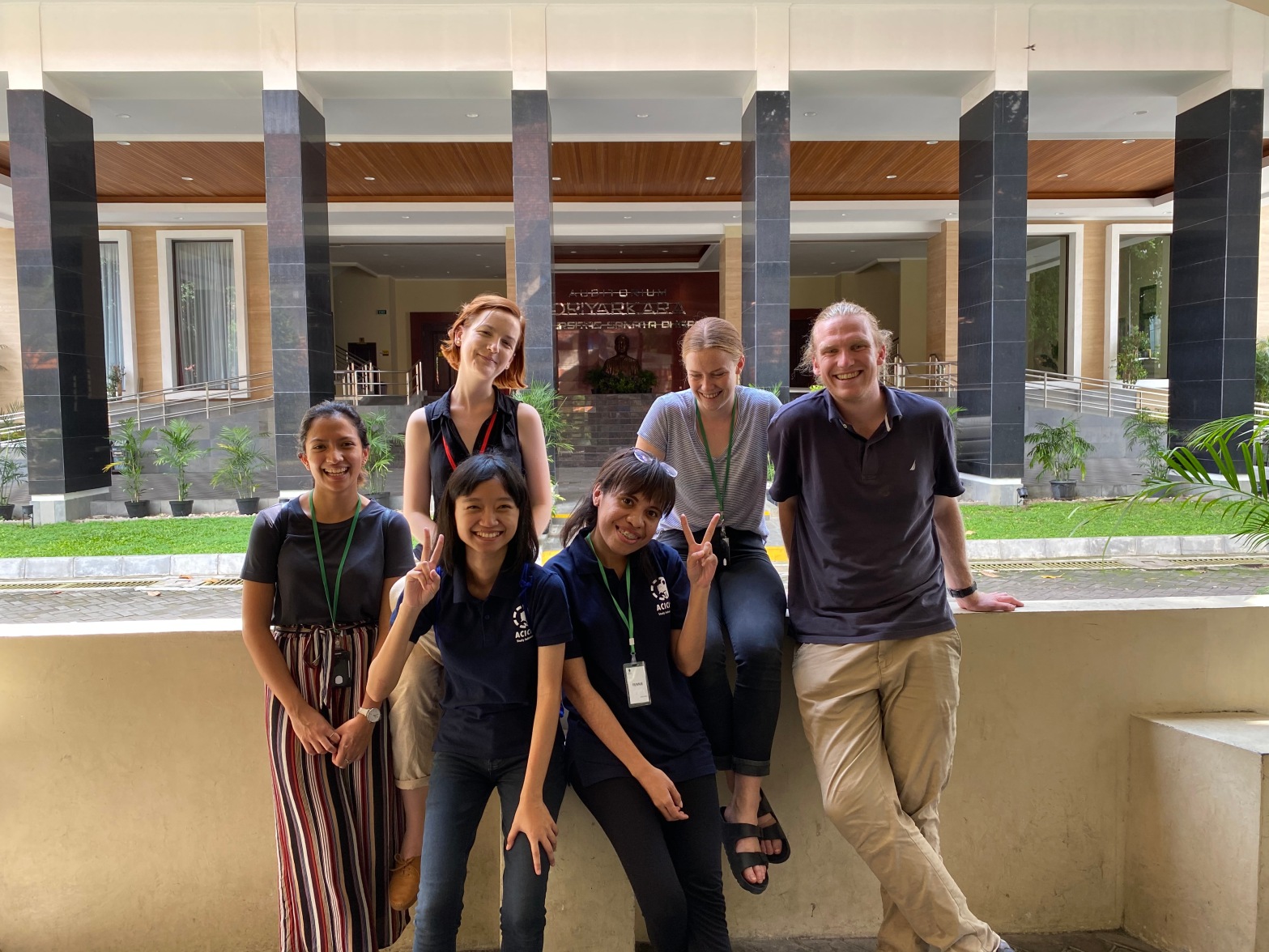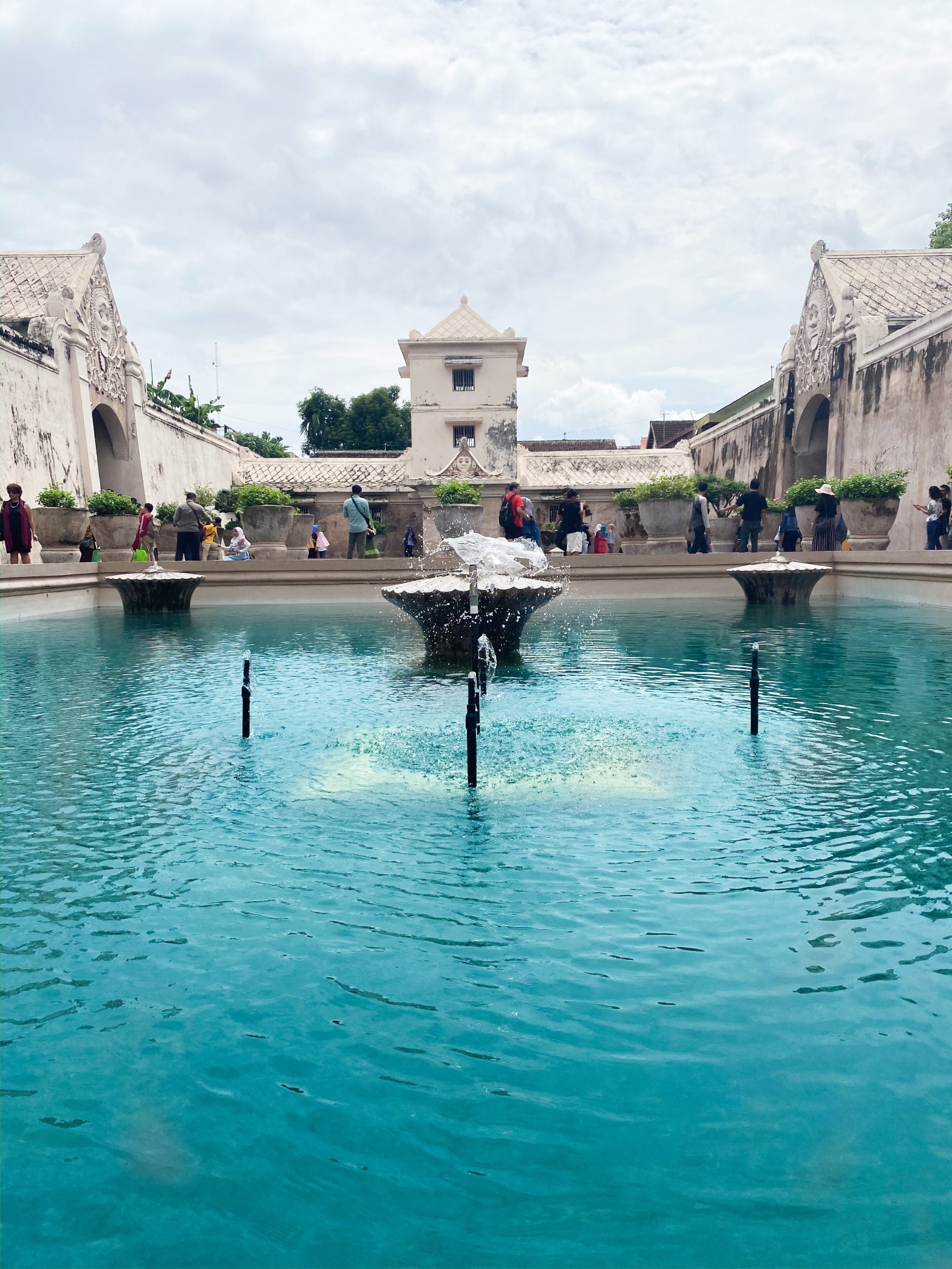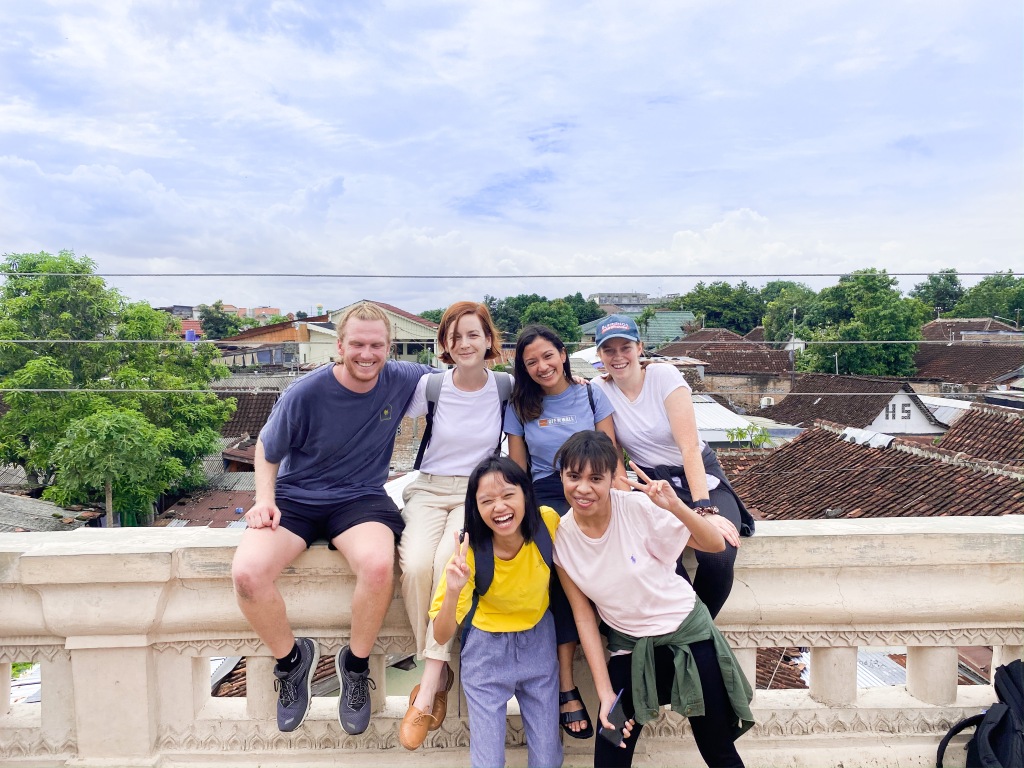With this blog, I will be sharing my reflections and experiences throughout my 6 weeks in Indonesia. Stay tuned.
IDRP Blog 3
This is it. I’ve finally finished up and returned back to Australia and had some time to reflect and come to ultimate clarity of my experience. My internship with Plan International Indonesia did not come with a specific project or task that I was to complete within the month I spent with them, but more of a fundamental learning experience of partaking in a new work place, within an international context. I struggled in a number of ways, work ethic being one of them previously mentioned in my last blog. Another challenge was being a critical thinker and thinking reflectively upon my own work ethic and finally finding value in my position within an organisation. Having had time to sit and reflect upon these experiences has drawn some light and being able to write it all down brings ultimate clarity to what I have learned from this experience, despite the challenge of not having an actual project to see the end of.
I find that I am able to critically reflect on my own actions when I do encounter a general problem with a profound solution, however with this experience, I have found myself considering if I am thinking correctly about how to improve myself. I know that I can professionally expand when my authority or peers reflect with me but I need to learn to prompt myself independently and improve that initiative. Critically thinking, however, I have realised this skill of reflection is not just about how I can improve myself but how I can help my workplace improve as well. After all, McCormick’s (1993) short article considers that an internship is designed to challenge the student, just as much as the employer and the business need to be challenged by the student undertaking the internship.
Both McCormick’s (1993) short article and Gardner’s (2008) article consider the fact that employee’s are quite taken with job applications and resumes that hold international internship experiences with employee’s most commonly stating that the qualities they find in such students are “resourceful in accomplishing assignments”, “ability to work independently, “allocating time effectively” and “gaining new knowledge from experiences” (Gardner et al, 2008), all of which I believe I have done throughout this month.
In comparison to Australia and the internships I have conducted here, I find that I may be challenged differently whilst completing set tasks to a certain standard with a deadline. However, I am finding here that my main challenge is using my initiative to actively find tasks and provide feedback as my education and previous experiences are vastly different to those here and I can offer an outsiders perspective. This is where I need to find value in my position. Yes, I am an intern and I am here to learn. Colloquially put, I’m the bottom of the food chain. But my host organisation is also eager to learn from me. Transparency is what feeds a growing and changing organisation.
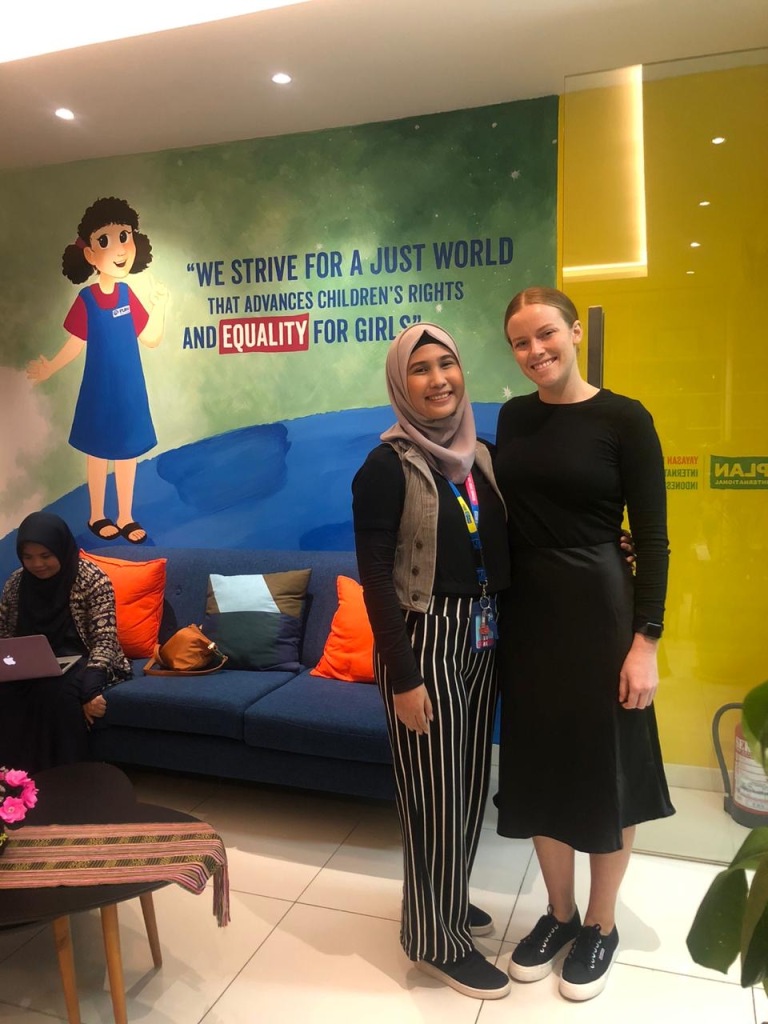
This whole experience has challenged me in a way that I did not expect to be challenged. It has ultimately recreated my entire perspective on cultural similarities and differences and it has truly shaken the knowledge I thought I had of Asian values in a development context. How truly fortunate I am to have had this experience and to be pushed outside of my comfort zone when I thought my comfort zone was almost impenetrable.
Bibliography:
McCormick, D 1993, “Critical thinking, experiential learning and internships”, Sage Social Science Collections, Vol. 17, No. 2, Pp. 260-262
Gardner, P, Gross, L, Steglitz, I 2008, “Unpacking your study abroad experience: Critical reflection for workplace competencies”, Collegiate Employment Research Institute, Vol. 1, No. 1, Pp. 1-11
IDRP Blog 2
Here I am, half way through my placement with Plan International. I started this internship with wide eyes and, what I thought was a really good understanding of the differences in work culture and values in Asian countries, more specifically those dappling in poverty. My work in Borneo, rural Bangalore, and South Africa grounded me and developed my sense of cultural principles in different professional environments. But what I’ve been presented with in Jakarta has challenged me greatly in a way I was not prepared for.
I am an incredibly task orientated person, something I believe has been socially constructed by western values into the way I was raised and educated. My work ethic, in this regard, was challenged upon arriving at the office. I was presented with the task of no task. My mentor communicated to me that she had no outline of what to expect from me or what I expected from her and so she was simply going to have me come into the office as I pleased to speak to different people about their projects. This meant that I was only to come into the office two or three times a week for an hour or two and in the mean time to conduct my own research at my pleasure and communicate with questions as they came to me. This greatly frustrated me as I arrived with the expectation to have work thrown at me and to be professionally challenged in this environment. To overcome this frustration, I let myself find peace with the differences in work ethics and did some research. Sparrow, Chadrakumara and Perera coined a term, “organisational citizenship behaviour (OCB)” (2010) to address the different roles that societal values have on work ethic in businesses. The article they published, “Impact of work values and ethics on citizenship and task performance in local and foreign invested firms: A test in a developing country context”(Sparrow, Chadrakumara & Perera, 2010), also discusses that “cultural values do indeed play a role in encouraging or dissuading OCBs” (Sparrow, Chadrakumara & Perera, 2010). This explains the inherent factor that “in business management they tend to mix Asian traits with Western management philosophies and practices” (Sparrow, Chadrakumara & Perera, 2010), which reflects upon a somewhat obscure and ambiguous working culture.
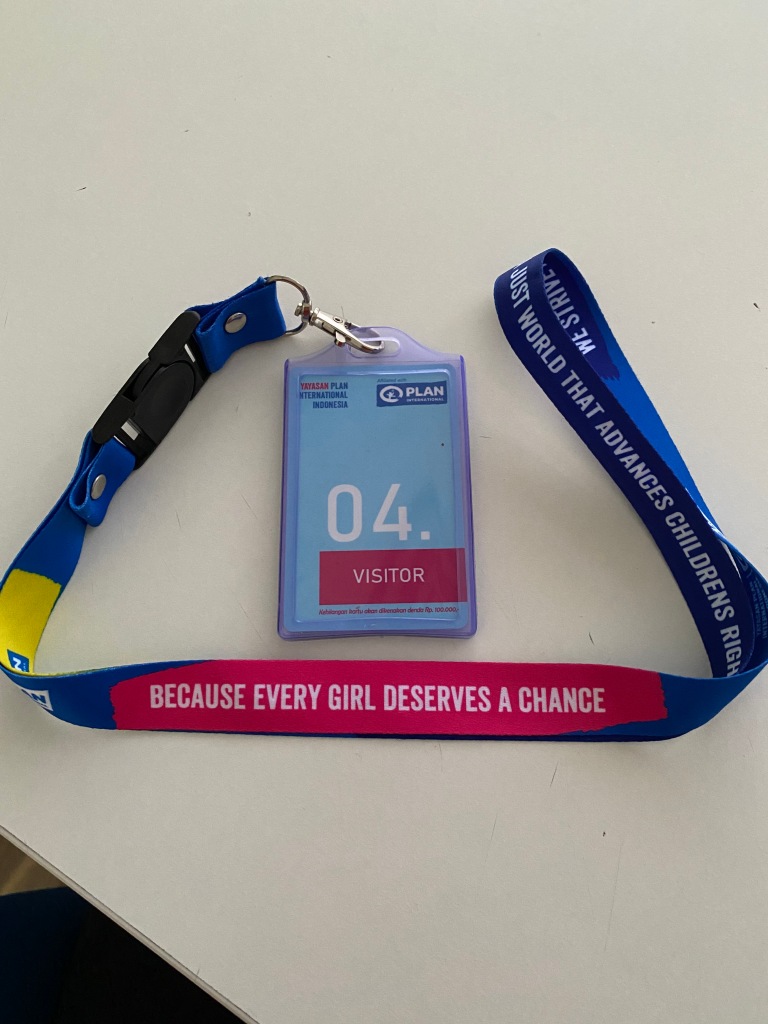
Upon reflection of my attitude with this new revelation, I have connected with some of the qualities mentioned in Gardner’s (2008) article such as “identifying new problems/alternative solutions” and “interacting with people who hold different interests, values, or perspectives” (Gardner et al, 2008) to really challenge myself on a personal and professional level and not let my learning outcome be affected by my old expectations. Professionally, I have been revising and researching the Green Skills II Project of Plan International and contrasting that project with other projects I have worked on in order to create feedback and constructive criticism for the project but I have been challenged by my lack of experience in such a field of feedback and constructive criticism so this was a huge learning experience for me. However, I have challenged myself to think positively about my input and feel confident that I have achieved this.
I’m really eager to turn this challenge into a really great positive experience, and I’m confident that I can alter my old expectations to really push myself to dig deeper into this experience.

Bibliography:
Sparrow, P, Chadrakumara, A & Perera, N 2010, ‘Impact of work values and ethics on citizenship and task performance in local and foreign invested firms: A test in a developing country context’, Centre for Health Service Development – CHSD, Pp. 1-25
Gardner, P, Gross, L, Steglitz, I 2008, “Unpacking your study abroad experience: Critical reflection for workplace competencies”, Collegiate Employment Research Institute, Vol. 1, No. 1, Pp. 1-11
ACICIS Weekly Reflective Journal 4 – 14th February 2020
- What key issues did you examine through your placement activities this week?
This week, my key issue was coming to terms with the idea that what is considered morally wrong in Australia, is not always considered morally wrong in Indonesia. I came across an image published in an old article shared by Plan International of a child defecating into a river naked. The image does not showcase the child’s face, which is how the image is allowed to be distributed in Indonesia. In Australia, however, that image would not be allowed as protection of the child. This has happened in many cases, and is quite inherent in policies and programs that are reflective of Indonesia’s social, political and cultural context. This issue is also relevant to why it is embedded in my university studies, that as a western development practitioner, it is not my place to imbed my western values into other cultures but to work with the culture. I have always respected this sentiment and never found an issue in conducting myself in this manner, but have found it challenging to regard when it comes to child protection and gender based violence that is somewhat considered normal in Indonesia.
- How does this reflector relate to one (or more) of your required readings?
This is relevant in Adam Cohen’s reading “Many Forms of Culture” (2009), when he considers his work on religions and cultures he reviewed that “theorizing and empirical work on socioeconomic and social class differences also document cultural differences in values, norms, and practices, as well as artifacts (such as music) that cultural groups create and that affect their worldviews” (Cohen, 2009). This is something I must always be actively aware of “when investigating social class and socioeconomic status, many investigators also probe subjective social class, or individuals’ estimation of their own social class” (Cohen, 2009).
- How do the issues you have examined during your placement this week compare with those in your home country?
The main difference would inherently be that I am so conditioned to know my own culture, my values and my morals that when someone in my own culture does something that might be wrong, I have firm ground to stand on when speaking up about it. However, in Indonesia I don’t know the culture well enough to speak in defence of someone without being critical of their values.
- Did you face any professional challenges in your placement this week? How did you overcome them?
This week, professionally I was challenged by my own western values, which has taught me a lot about being self reflective and self critical when it comes to being an international development practitioner, especially in an international NGO, where I am expected to mould into their culture as seamlessly as I can whilst on my placement.
- What was your key learning outcome from this week’s placement activities?
This week, my key-learning outcome from this week’s placement is to hold my personal morals and values close to my heart, but be extremely considerate of those values and morals in an international context.
Bibliography:
Cohen, A 2009, “Many Forms of Culture”, American Psychologist Association, Vol. 64, No. 3, Pp. 194-204
ACICIS Weekly Reflective Journal 3 – 7th February 2020
- What key issues did you examine through your placement activities this week?
This week, due to a turn of events with my health, I have had to return home to Australia. However, I have been allowed to complete my internship via correspondence. Therefore, it would be reasonable of me to say that my key issue this week was completing 40 hours of internship work through correspondence with a time difference. The time difference is only 4 hours, however communicating within that 4 hour difference means that when my mentor starts work at 10am local Jakarta time, it is 2pm my local time in Australia and when she finishes work at 5pm Jakarta time, it is 9pm my local time. I have had to remain consistent in asking for work for the earlier part of my tomorrow’s so as to not fall behind, and remain flexible with communication past 5pm or 6pm. However, I have found that my learnings and participation/outputs have been more since working via correspondence and looking back, I have realised this is because I was being somewhat drowned out by the other student I am on placement with. I didn’t speak up much in my first two weeks as every time we were posed a question, the other student would immediately respond and I failed to speak up as a result of causing tension with her.
- How does this reflector relate to one (or more) of your required readings?
I believe I now possess some of the qualities mentioned in Gardner’s (2008) article such as “identifying new problems/alternative solutions” and “interacting with people who hold different interests, values, or perspectives” (Gardner et al, 2008). I do wish I had noticed this trait during my interactions with her as I could have overcome that fear of disagreeing with her in person. But due to my ability to work rurally, I have been able to “create identity and meaning” (Boud and Middleton, 2003) outside of my learnings with her.
- How do the issues you have examined during your placement this week compare with those in your home country?
In my home country, I believe I would have been offered the opportunity to debrief with a mentor privately to express any such concerns and then devised a way to tackle that problem with a constructive solution as “workplace supervisors are a part of the networks of learning” (Boud and Middleton, 2003), therefore my workplace supervisor would have been a part of the solution as well. This would effectively maximise my contributions, as well as constructively teaching the other student to rein it in with their own personal feedback and the supervisor would also learn how to facilitate that.
- Did you face any professional challenges in your placement this week? How did you overcome them?
Professionally, I have been revising and researching the Green Skills II Project of Plan International and contrasting that project with other projects I have worked on in order to create feedback and constructive criticism for the project but I have been challenged by my lack of experience in such a field of feedback and constructive criticism so this was a huge learning experience for me. However, I have challenged myself to think positively about my input and feel confident that I have achieved this.
- What was your key learning outcome from this week’s placement activities?
My key-learning outcome from this week’s placement is that “staff can have difficulties in trusting supervisors to facilitate their learning because of supervisors’ formal role in surveillance of staff and the need for individuals to portray themselves as competent workers” (Boud and Middleton, 2003) and therefore, their facilitation of presenting challenges and solutions are quite varied from those I am accustomed to in Australia. Therefore, I will speak up when I find I have a challenge that I need help addressing.
Bibliography:
Boud, D and Middleton, H 2003, “Learning from others at work: communities of practice and informal learning”, Journal of Workplace Learning, Vol. 15, No. 5, Pp. 194-202
Gardner, P, Gross, L, Steglitz, I 2008, “Unpacking your study abroad experience: Critical reflection for workplace competencies”, Collegiate Employment Research Institute, Vol. 1, No. 1, Pp. 1-11
ACICIS Weekly Reflective Journal 2 – 31st January 2020
- What key issues did you examine through your placement activities this week?
This week I have struggled with the concept of being a critical thinker in varied ways. I find that I am able to critically reflect on my own actions when I do encounter a general problem with a necessary solution, however this week I have found myself considering if I am thinking correctly about how to improve myself. I find that I can expand further when I am prompted but in this instance, I need to learn to prompt myself. But maybe critically thinking is not just about how I can improve myself in the work place, but how I can help my workplace improve as well. After all, McCormick’s (1993) short article considers that an internship is designed to challenge the student, just as much as the employer and the business need to be challenged by the student undertaking the internship. So this week, the question I am asking myself is, am I doing enough to challenge the internship at Plan International as much as it is challenging me?
- How does this reflector relate to one (or more) of your required readings?
Both McCormick’s (1993) short article and Gardner’s (2008) article consider the fact that employee’s are quite taken with job applications and resumes that hold international internship experiences with employee’s most commonly stating that the qualities they find in such students are “resourceful in accomplishing assignments”, “ability to work independently, “allocating time effectively”, “gaining new knowledge from experiences” (Gardner et al, 2008) and many more.
- How do the issues you have examined during your placement this week compare with those in your home country?
In comparison to Australia and internships I have conducted there, I find that I may be more challenged in completing set tasks to a certain standard. However, I am finding here that my main challenge is using my initiative to actively find tasks and provide feedback as my education and previous experiences are vastly different to those here and I can offer an outsiders perspective.
- Did you face any professional challenges in your placement this week? How did you overcome them?
Professionally, I do not think I have faced a challenge this week. However, I do think I will be facing a challenge next week as my mentor has let us know that she would love our feedback on their new country strategy before they publish anything. So this week, I guess I could say my challenge is to prepare myself and learn about their current country strategy so I can provide relevant and quality feedback where necessary.
- What was your key learning outcome from this week’s placement activities?
My key learning outcome from this week’s placement activities is that I should aim to think outside of the box when being a critical thinker, such as McCormick (1993) says “it is easier to be a critical thinker when contemplating information or perspectives from a distance” and that “part of becoming a manager is learning to evaluate alternative business strategies” (McCormick, 1993). Therefore, I will challenge myself to further expand on my thoughts, actions and surroundings without any outside help.
Bibliography:
Gardner, P, Gross, L, Steglitz, I 2008, “Unpacking your study abroad experience: Critical reflection for workplace competencies”, Collegiate Employment Research Institute, Vol. 1, No. 1, Pp. 1-11
McCormick, D 1993, “Critical thinking, experiential learning and internships”, Sage Social Science Collections, Vol. 17, No. 2, Pp. 260-262
ACICIS Weekly Reflective Journal 1
24th January 2020
- What key issues did you examine through your placement activities this week?
The first challenge I encountered on the very first day of placement was the lack of structure that I slowly realised I would be constantly managing. I am a very task orientated person, and upon arrival and within the first hour of orientation, it was made clear to me that the work I was to do was simply my own research about the company in my own time. I struggled with this as ACICIS has a work plan with specific tasks to be done each week to submit by the end of the first week that I was planning on following throughout the month. This means that I will be faced, each day, with not knowing what is expected of me and to ‘wing’ each day as it comes. This is something that I have been raised in Australia to not do – I have been conditioned to be task orientated and to be as organised in advance as possible. I think something else I am also going to struggle with, is coming to peace with the idea that this placement is only 4 weeks long, and in that time, all I can do is learn, I cannot make the kind of impact that I would love to make. I like to be very hands on, but it is not realistic or sustainable for Plan International to allow me to undertake any hands on tasks since I am only able to work with them for 20 days.
- How do the issues you have examined during your placement this week compare with those in your home country?
This particular challenge is unlike any I’ve experienced in Australia. All of the work placements and companies that I have worked for have been structured in a task orientated way. They have also been goal based in a way that means I am able to discuss what the company expects of me and create my own targets to achieve within reason. Plan International has specified that they have no targeted outputs for us and they just want us to learn whatever we want on the days that they can accommodate to us.
- What was your key learning outcome from this week’s placement activities?
My key learning outcome, based off the stated challenge above, will be to take more initiative and set out some professional key learnings about Plan International that I wish to learn about. This will allow me to do some research prior to speaking to the employees of Plan International. I will also have to critically work on my expectations and learn to just go with the flow as they are not task orientated. I think I will have to find comfort in not knowing what I might achieve each day and making the most of each day with the comfort of having task orientated goals. I will do this by openly communicating with my mentor at the start of each day, and searching for small tasks or my own research to do that I can organise in my own time.
As a conclusion to this blog, I want to take note of a quote in the article “Learning from others at work: communities of practice and informal learning” by David Boud and Heather Middleton who stated that “there is value in rendering learning visible so that it can be consciously deployed in enhancing work and the quality of work life”. I will take this quote with me into next week and actively take pride in the fact that I have the privilege to complete an internship at an incredible organisation and even though I will not be completing set tasks, I have the opportunity to learn about the organisation and their employees first hand.
Bibliography: Boud, D, Middleton, H 2003, “Learning from others at work: communities of practice and informal leaning”, Journal of Workplace Learning, Vol. 15, No. 5, Pp. 194-202
IDRP Blog 1
This is my first blog for IDRP 1&2. I am currently in Yogyakarta, Indonesia with ACICIS about to commence the two weeks of intensive Indonesian language lessons with Sanata Dharma University.
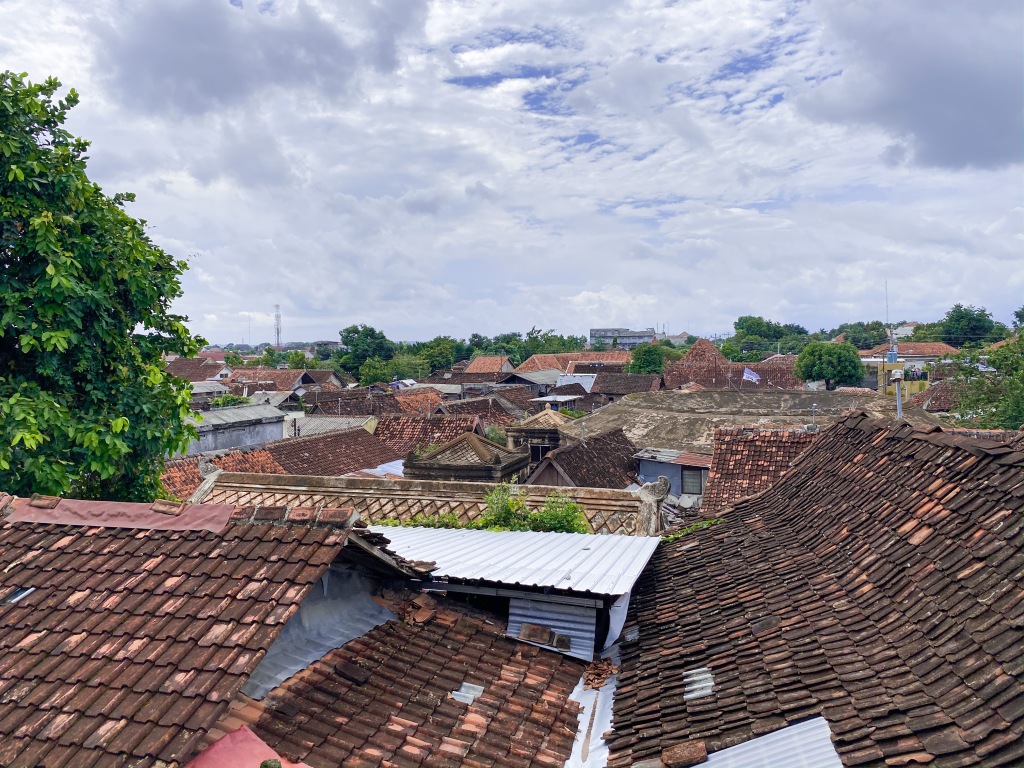
My placement happens to be in Jakarta, so I will be departing Yogyakarta following the intensive language lessons. I have been placed at Plan International Indonesia, an international organisation that primarily works towards advancing children’s rights and equality for girls. The key areas of work are:
- Youth economic empowerment
- Child and youth participation
- Disaster risk management
- Sexual and reproductive health
- Early childhood care and development
- Water, sanitation, and hygiene.
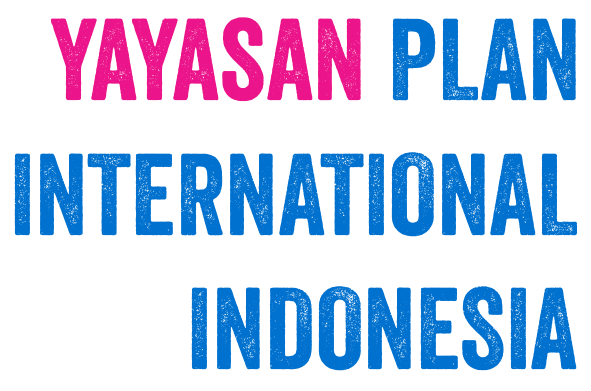
I’m hoping to be put on a project regarding sexual and reproductive health, as it’s a topic I have no experience in and I would love to be pushed outside my realm of knowledge. However, given the current circumstances in Jakarta with the flooding, I also think disaster and risk management would be filled with projects that I would be able to assist with.
Location wise, I am based in Central Jakarta, which will make accommodation and hopefully walking to work easy. I am sad that I will have spent two weeks in Yogyakarta, learning the language and doing the development course with a great group of people only to move to another state. However, the change of scenery and learning about a new place is exciting and will motivate me to become fully involved in the work and the culture. My hope for this placement is that I will come to understand what kind of impact such a large international organisation has on smaller communities. I hope to learn, in depth, about the short-term projects and the long-term projects and what outcomes they expect from these on a larger scale.
Globally, Plan International works across 71 different countries, working contextually to achieve similar outcomes for women and children, since 1937. However, they have only been based in Indonesia, since 1969.
Something I am a little concerned about, and hope to manage and overcome in this placement, is the challenge of being independent and taking full initiative. I like the comfort of being told what to do and doing that well, therefore I struggle with autonomy with the concern that I may be stepping out of place or doing something incorrect without being asked to do so. With this in mind, I will communicate this with my mentor and discuss how they would like me to undertake work in their organisation. This will create clear objectives for me to work towards, and expectations for my superiors in order to create a functional and achieving working relationship.
I do believe, at some point, I will be challenged by my western values. As an International Practitioner, and during my studies with International Development, one of the main precursors to the study is that we must not impede our own western values upon different cultures. We are trained to create sustainable solutions that do not devalue another’s beliefs and way of life. This is relevant in Adam Cohen’s reading “Many Forms of Culture” (2009), when he considers his work on religions and cultures he reviewed that “theorizing and empirical work on socioeconomic and social class differences also document cultural differences in values, norms, and practices, as well as artefacts (such as music) that cultural groups create and that affect their worldviews” (Cohen, 2009). This is something I must always be actively aware of “when investigating social class and socioeconomic status, many investigators also probe subjective social class, or individuals’ estimation of their own social class” (Cohen, 2009).
Bibliography:
Plan International 2020, Yayasan Plan International Indonesia, Viewed 12th January 2020, https://plan-international.org/indonesia
Plan International 2020, Plan International The Charity for Girls Equality, Viewed 12th January 2020, https://www.plan.org.au/
Cohen, A 2009, “Many Forms of Culture”, American Psychologist Association, Vol. 64, No. 3, Pp. 194-204

